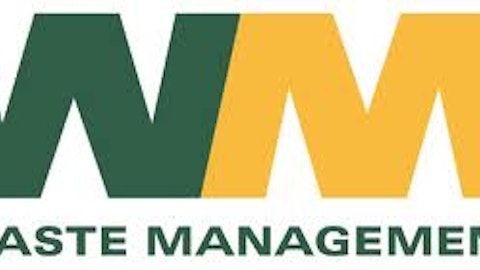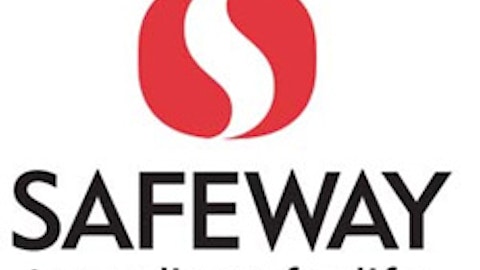Costco Wholesale Corporation (NASDAQ:COST) fits into the area given its stellar treatment of workers and low turnover. The book pointed to a time when Costco paid its workers double Wal-Mart’s wages to its own employees; Costco also covered a whopping 98% of workers’ health care costs.
The airline industry is among the most scorned, but Southwest Airlines Co. (NYSE:LUV) proved an example of one of the few airlines whose caring ways make it a part of the conscious business universe. It’s well known for having happy employees and providing a great experience for customers.
Most people aren’t fond of trash, and Waste Management, Inc. (NYSE:WM)‘s old and fairly uncool tag line was “Helping the world dispose of its problems.” Sustainability actually posed a threat to Waste Management, given reduced waste, but the book discusses how management actually increased consciousness and embraced the change. Waste Management now mines for value in our waste stream, with cool ideas like waste-to-energy and recycling, complete with high-tech equipment that separates comingled recycling.
Medtronic, Inc. (NYSE:MDT) former chairman and CEO Bill George is so simpatico with the message of Conscious Capitalism that he penned the foreword, describing his 1989 realization that his business could provide value for all stakeholders, most poignantly the value to the burgeoning number of patients “restored each year to fuller life and health from 300,000 people in 1989 to 10 million today” in part because of the company’s products.
Plenty positive
For those who have followed Whole Foods Market and John Mackey over many years, much in the book won’t come as a surprise. It distills and expands upon many of the thoughts he’s offered in speeches, blog posts, and interviews over years’ time. He’s even spoken here at Fool HQ several times on related themes.
For now, the strongest message in the book — and the most timely — is that business can and often does do better than many think. Meanwhile, a greater evolution has already begun, through conscious capitalism as well as related theories like natural capitalism and triple bottom-line thinking. It also outlines how conscious capitalism is different from, say, corporate social responsibility.
Also, the book’s conclusion deals with what many investors might wonder about conscious capitalism: Is it possible for investors to make money? The data reported shows that it absolutely is over the long term. Conscious businesses make great businesses, and investors should take note of the wisdom (and returns) this type of business is capable of producing over the long term.
Conscious Capitalism is a rare read in our increasingly polarized, politicized world: a frank discussion of problems and how to fix them that includes a message of love — that’s something you’d never hear from most CEOs. It prescribes a better, more positive way of thinking about enterprise and entrepreneurship, defends a system that has pulled many, many people out of poverty, and even provides food for thought from the spiritual, psychological, and philosophical areas.
It’s a primer not only for building conscious businesses and conscious leaders, but also for pursuing self-awareness at the individual level, too. In other words, it’s a positive read for these troubled times, for all kinds of people — not just investors. So bring on the love.
The article Who Is John Mackey? originally appeared on Fool.com and is written by Alyce Lomax.
Alyce Lomax owns shares of Waste Management and Whole Foods Market. The Motley Fool recommends Costco Wholesale, Southwest Airlines, Waste Management, and Whole Foods Market. The Motley Fool owns shares of Costco Wholesale, Medtronic, Waste Management, and Whole Foods Market.
Copyright © 1995 – 2013 The Motley Fool, LLC. All rights reserved. The Motley Fool has a disclosure policy.





